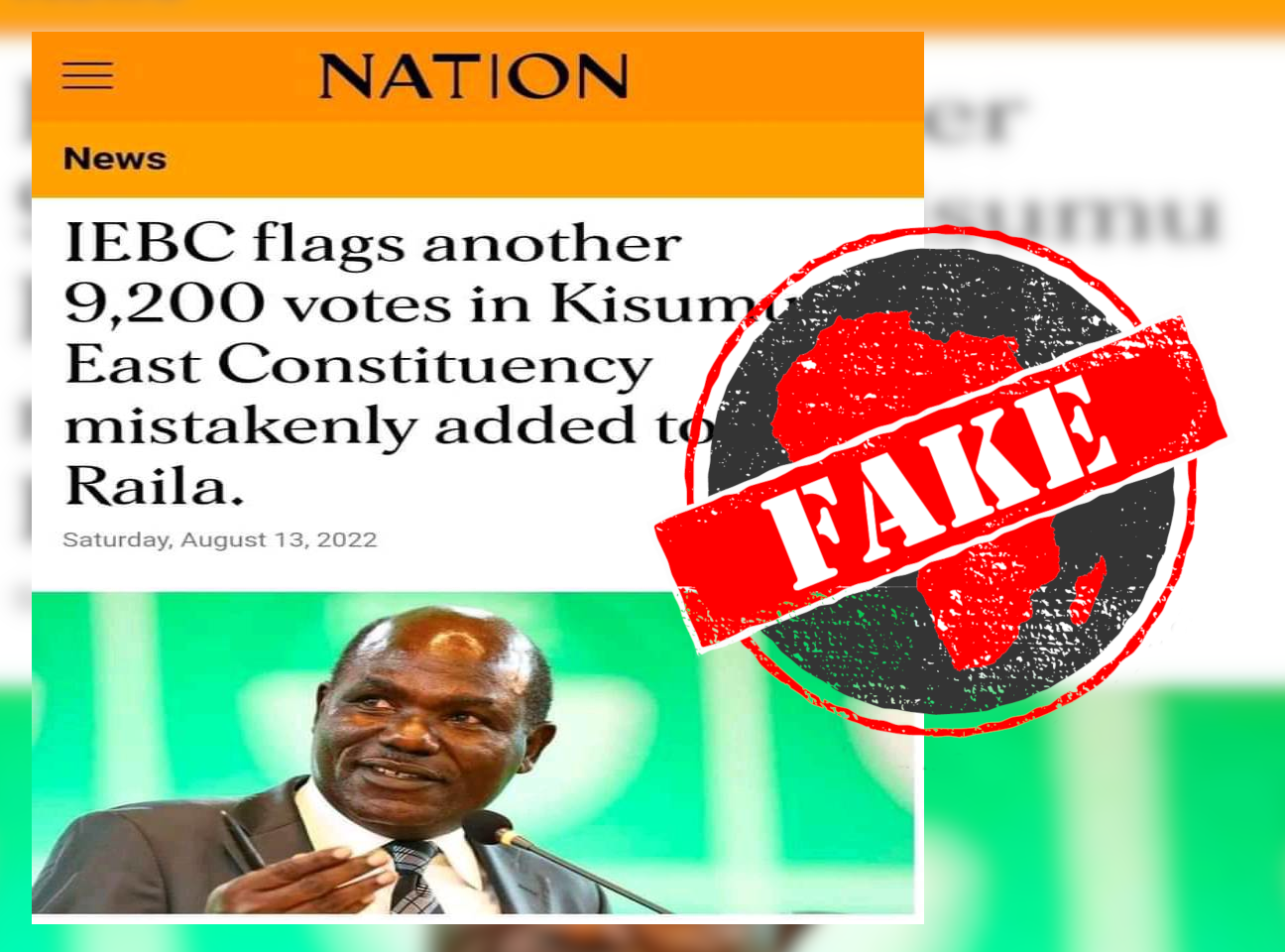“IEBC Flags another 9,200 votes in Kisumu east constituency mistakenly added to Raila,” reads the headline on what seems to be a screenshot of an article by the Kenyan news site Nation.
Kenyans voted in general elections on 9 August 2022.
On 15 August the IEBC, the Independent Electoral and Boundaries Commission, declared United Democratic Alliance candidate William Ruto the winner of the race for president. His main rival was Orange Democratic Movement leader Raila Odinga.
But Odinga disputes the result and is taking it to court.
The screenshot went viral on 13 August, moments after local media reported that the IEBC had mistakenly added 10,000 votes to Ruto’s tally in another constituency. The commission later said the error had been corrected.
Kisumu county in western Kenya is considered Odinga’s political backyard.
The screenshot can also be seen here, here, here, here, here and here. But is it from a real article? We checked.

No evidence
Other than the 10,000 votes erroneously credited to Ruto, no other major discrepancy in ballot counting has been reported.
Africa Check searched for the article on the Nation website and came up empty.
On 13 August, the Nation posted the screenshot on Facebook – stamped as fake.
“Beware of fake news! If it's not on our official social media pages, it's fake,” the post reads.
Republish our content for free
For publishers: what to do if your post is rated false
A fact-checker has rated your Facebook or Instagram post as “false”, “altered”, “partly false” or “missing context”. This could have serious consequences. What do you do?
Click on our guide for the steps you should follow.
Publishers guideAfrica Check teams up with Facebook
Africa Check is a partner in Meta's third-party fact-checking programme to help stop the spread of false information on social media.
The content we rate as “false” will be downgraded on Facebook and Instagram. This means fewer people will see it.
You can also help identify false information on Facebook. This guide explains how.





Add new comment